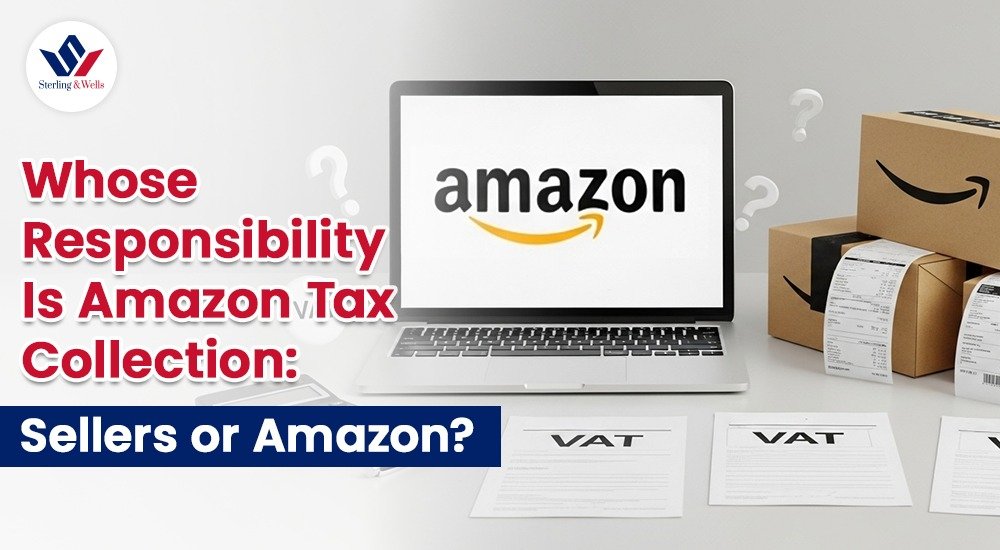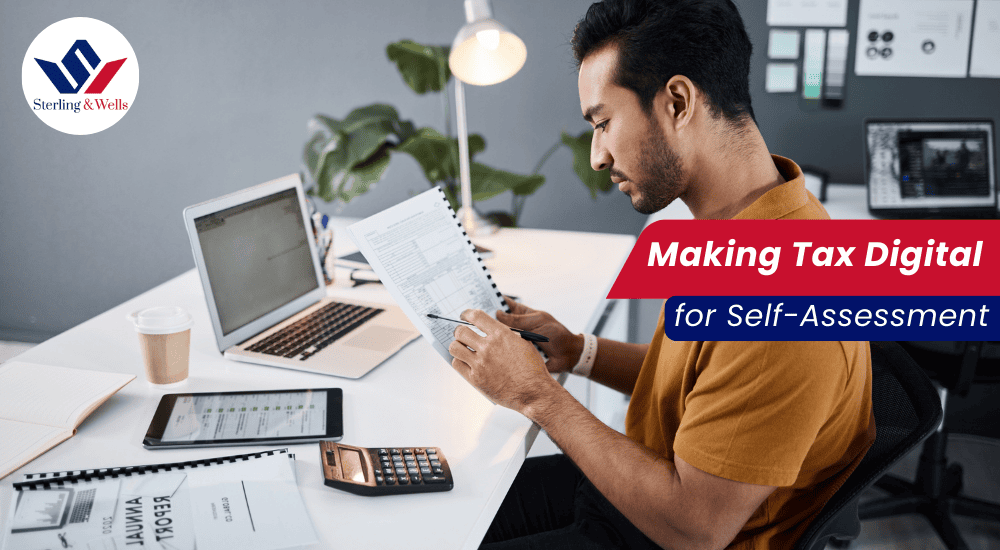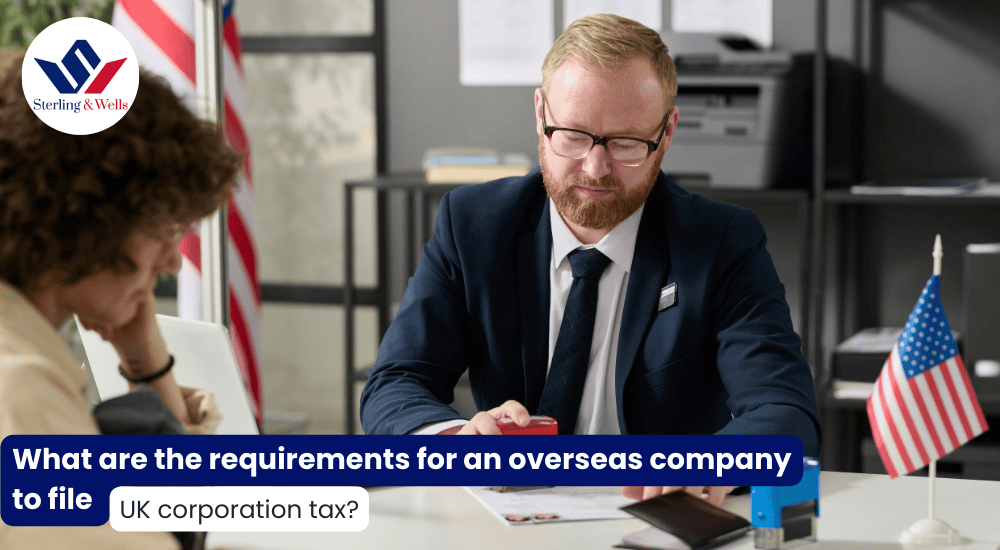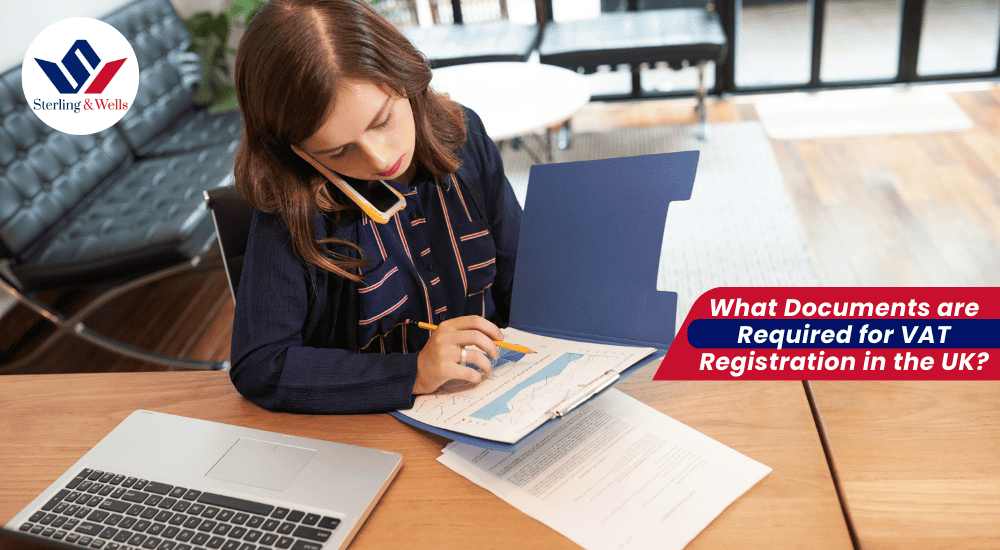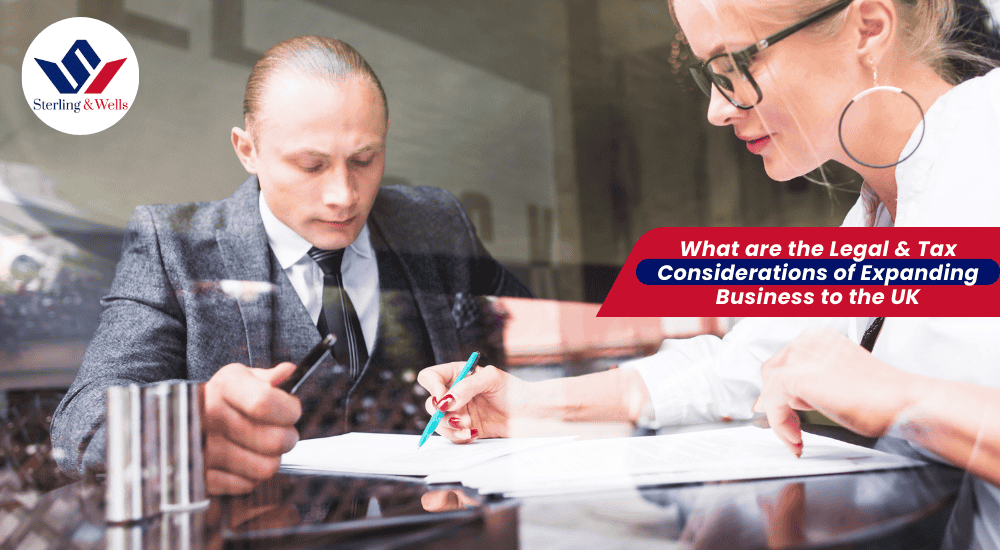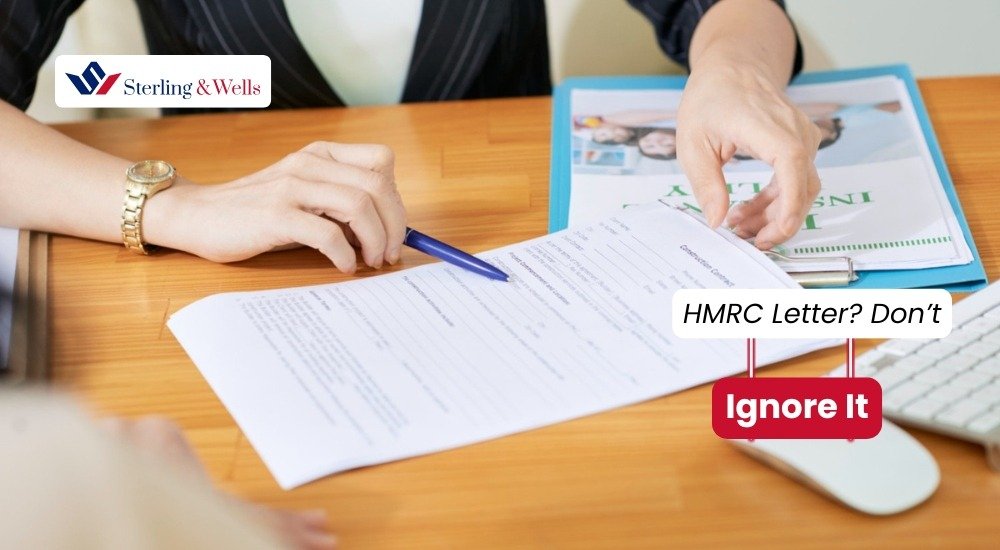Selling on Amazon has opened tremendous opportunities for businesses and individuals in the UK. However, it has also introduced complexities around tax collection that can leave sellers wondering: who is actually responsible for collecting and paying tax — the sellers themselves or Amazon?
For anyone selling on Amazon, or considering starting, understanding the tax landscape is essential. Not only does it help you stay compliant with UK tax laws, but it also ensures your business runs efficiently. This guide explores the nuances of tax responsibilities in the Amazon ecosystem, focusing on UK sellers, VAT obligations, and how professional guidance can simplify the process.
How Tax Collection Works for Amazon Sellers
It is easy to assume that because Amazon is a global platform, it handles all tax matters for its sellers. In reality, while Amazon collects certain taxes in specific scenarios, the responsibility to collect and remit taxes largely falls on the seller. For UK sellers, this primarily relates to Value Added Tax (VAT).
VAT is charged on most goods and services in the UK at a standard rate of 20%. If your business turnover exceeds £90,000 in any 12-month period, you are legally required to register for VAT with HM Revenue and Customs (HMRC). This obliges you to charge VAT on eligible sales, maintain accurate records, and submit VAT returns.
When and What Taxes Amazon Actually Collects
Amazon does collect taxes in certain situations. For instance, in some jurisdictions like US states with marketplace facilitator laws, Amazon collects and remits sales tax on behalf of sellers. However, in the UK, Amazon does not collect or remit VAT for your sales. VAT is included in your sales price, but declaring and paying it to HMRC remains your responsibility.
A notable update took effect in August 2024, when Amazon began charging VAT on its seller fees, including referral fees and Fulfilment by Amazon (FBA) charges. Because Amazon’s invoicing entity changed to Amazon EU S.A R.l., which has a registered branch in the UK, VAT is applied to these fees. VAT-registered sellers can usually reclaim this VAT, but proper accounting and recordkeeping are essential.
Your Tax Obligations as an Amazon Seller
Your tax obligations as an Amazon seller depend on factors such as your turnover, the way you fulfil orders, and where your stock is stored.
For VAT, registration is mandatory once you exceed the £90,000 turnover threshold. Even if your turnover is below this, voluntary registration can be beneficial for reclaiming VAT on expenses. After registering, you must charge VAT on your sales, maintain thorough records, and file returns quarterly.
Using FBA adds complexity. If your stock is stored in warehouses outside the UK, including Amazon’s European facilities, you may have additional VAT registration obligations in those countries. Cross-border storage means compliance in multiple jurisdictions, which can quickly become intricate without proper guidance.
For income tax, sole traders and partnerships report profits from Amazon sales on their Self Assessment returns. Limited companies pay corporation tax on their profits. Accurate bookkeeping is vital, including invoices, receipts, Amazon fees, shipping costs, marketing expenses, and other operational costs. This ensures both compliance and reliable financial management.
If you fulfil your own orders rather than using FBA, Amazon does not manage tax collection. You must account for VAT on sales, ensure invoicing is correct, and make timely payments to HMRC. Even small or part-time sellers should be aware of the £1,000 trading allowance. Casual sellers under this limit may not need to register for VAT, but surpassing it triggers compliance obligations.
Practical Tips for Amazon Sellers to Stay Compliant
To manage tax responsibilities effectively, consider these practical steps:
- Maintain Detailed Records: Keep invoices, receipts, and transaction histories for all Amazon sales, fees, shipping costs, and marketing expenses. Accurate records are crucial for both VAT and income tax reporting.
- Understand VAT Requirements: Know when you need to register for VAT in the UK and potentially other countries if your stock is stored abroad. Monitor turnover thresholds and changes to VAT rules that affect marketplace sellers.
- Separate Business Finances: Keep your Amazon business accounts distinct from personal finances to make accounting and tax reporting easier and more accurate.
- Plan for Tax Payments: Regularly set aside funds for VAT and income tax to avoid cash flow issues when obligations fall due.
- Seek Professional Advice Early: Expert guidance can prevent mistakes, identify reclaimable VAT, and ensure you stay compliant while optimising your tax position.
Final Thoughts: Mastering Your Amazon Tax Responsibilities
Selling on Amazon offers tremendous opportunities, but it also brings tax responsibilities that cannot be ignored. While Amazon simplifies many aspects of online selling, it does not relieve you from VAT registration, filing VAT returns, or managing income tax obligations.
Working with professional support ensures your tax compliance is accurate, up to date, and optimised for your business. From VAT registration and bookkeeping to income tax reporting, expert guidance can save time, reduce stress, and strengthen your financial management.
Understanding your obligations and taking proactive steps makes your Amazon business more sustainable and gives you confidence in navigating tax requirements, turning what could be a confusing area into a clear, manageable process.
If you would like assistance with VAT registration, bookkeeping, tax returns, or any other accounting services related to your Amazon business, contact Sterling & Wells to discuss solutions tailored specifically to your needs.
